
Edited 6/5/15
This post is getting long with amendments, so for the hurried reader, our findings in summary. Please read the longer post for details:
As of today, we are still only able back three products without reservation for use in greywater:
• Oasis Liquid Laundry Detergent
• Bio-Pac Laundry Detergent
• soap nutsETA 8/14: Also, it looks like Fit Organic Laundry Detergent is safe as well. Thanks, Judy!
Sorry folks, I know that’s not a lot in terms of choice.
The following eco-friendly detergents are often listed as greywater compatible, but we have reservations about them. We recommend you research these products more on your own, and consider your own greywater system as well as the specific plants and soil you are irrigating before deciding whether these should be used or not.
Ecos: Contains sodium coco sulfate
Vaska: Has a D+ rating on the Environmental Working Group’s product safety database.
Lifetree: Has a pH level of 7
Dr. Bronner’s liquid soap: Fine for greywater use in general, but it simply is not a laundry detergent–it’s castile soap. You can wash your clothes with it, but the results won’t be spectacular.
This is the original post:
When your laundry water is going to the soil instead of to the sewer (or a septic tank) you need to make sure that detergent is friendly to soil life. All of your basic, big brand detergents are a no-go for greywater.
Even the various eco-detergents, even ones marked “biodegradable”, are not appropriate for the soil because they are essentially salt-based (look for the word sodium on the label). They play well with aquatic life, bless them, and they’re a fantastic alternative to more toxic detergents if your laundry water is going to the sewer, but they aren’t good for soil microorganisms. Surely you’ve heard that salting the land is a bad idea? You don’t want to salt your garden.
It’s worth adding that the drier your climate, the saltier the soil, because there is not enough rain to help percolate it away–so if you live in a dry climate it’s even more important to be careful with salts.
Homemade detergents–the ones based on soap and washing soda–are also not an option, again because of their salt content.
Salt is always my first concern, but laundry detergents can contain a host of other ingredients you just don’t want in your soil. Here’s a list of things to avoid which I lifted from Brad Lancaster’s eminently useful site (he in turn, lifted them from the State of California’s Department of Water Resources) Check out that link to Brad’s site for more good info. on greywater detergents, and all things greywater in general:
According to State of California Department of Water Resource’s Graywater Guide: Using Graywater in Your Landscape [2], specific ingredients to avoid include:
-chlorine or bleach
-peroxygen
-sodium perborate
-sodium trypochlorite
-boron
-borax
-petroleum distillate
-alkylbenzene
-“whiteners”
-“softeners”
-“enzymatic” components
As far as I know with the information I have today, this leaves us with three detergent options. If you know another detergent which is specifically formulated for greywater use, please let us know.
1) The first is a laundry detergent called Oasis Biocompatible, sold by Bio Pac. This is what we use. It’s a basic, colorless, odorless, super concentrated liquid detergent, specifically formulated for greywater use. It works very well, but doesn’t have the bells and whistles of “whiteners” and “brighteners” found in grocery store brands. To me, this is a plus. It is not found on supermarket shelves. I have seen it in some health food stores, but we order it online. This is not too bad of a deal because it is concentrated, so a gallon bottle lasts a long time.
I’ll add that sometimes it can’t be found online, and this is frustrating. I’d ask the folks at Bio-Pac to find some means to ship it directly to the consumer, as local sources can be hard to find.
2) Bio Pac Ultra Liquid Laundry Detergent is sort of a sister product to Oasis, and though I haven’t used it, I think it’s very similar. We’re going to do some research and report back on the difference between these two products.
2) The final option is soap nuts. Soap nuts are the dried fruit of the soap nut tree–they look a little like a cross between a date and a hazelnut. They are full of natural saponins (soaping agents) which are released in the wash. These saponins have been tested and don’t harm soil life.
You just drop 3 or 4 of the nuts into a little muslin bag (which comes in the box), and throw that bag in the wash with your clothes. They activate better in hot water, so some people will opt to soak the bag in a cup of hot water first–like making tea–and then dump the water and the bag into the wash. Other people stew the nuts in water and make soap nut tea, which can then be used like liquid soap, for both hand washing and laundry. There’s lots of info online about soap nuts if you poke around a bit.
I just remembered that I posted here back in 2010, asking for feedback on the nuts, and got lots of it. So you might want to check that out.
If you’ve never heard of soap nuts, the whole idea might seem strange. But remember, all soap really does is help water work better, and they release soap. The real washing power is the agitating water in your machine.
Incidentally, Oasis, Bio Pac and soap nuts are fine for HE washing machines.
ADDENDUM: Option #3: Thanks to commenters Kay and Matt, I’m going to add a 3rd product to this list: Ecos Laundry Detergent. It claims to be greywater safe, I checked the ingredients and saw no salts, and Matt says he’s used it for a year successfully. Sounds good to me! Also in the plus category, this Ecos seems easier to find in stores than Oasis. Addendum to the addendum: Ecos contains sodium coco sulfate which some folks do not consider biocompatible.
ADDENDUM 6/5/15: I’ve been doing some more research on the topic, and sad to say, I have only negative results to add to this list:
Some greywater lists include Vaska laundry detergent. Unfortunately, it scores a D+ on the Environmental Working Group guide. As far as I can tell, some of the low score is attributable to non-disclosure of ingredients, but still, it causes me concern.
Lifetree liquid laundry detergent is a bio-degradable product which is safe for septic systems, and which also appears on some greywater lists. However, none of their product information states specifically that it may be used for greywater, so I wrote to them. They kindly replied in some detail, explaining that Lifetree contains no salts, but it does have a pH of 7.
They recommended I consider the effects of that level pH on the area I am irrigating with greywater–and I liked this, because this response acknowledges the complexity of the issues. This pH may be acceptable in some situations, and on some types plants, but not all. For us in the West, our soil pH is already quite high, so Lifetree is not a possibility for us.
Also:
Pure castile soap, like liquid Dr. Bronners, is okay for the soil, but it doesn’t really work as a laundry detergent. You can use it as such for the occasional load, but you will find your clothes turning grey with extended use. Sometimes, however, if I’m dealing with a musty or stinky load of laundry, I’ll put a squirt of scented Dr. Bronners into my machine along with my Oasis or soap nuts, since Oasis is odorless, and soap nuts have a bit of an organic scent (which doesn’t linger on the clothes).
Laundry additives:
You also need to be careful with laundry additives when your laundry water is going to the garden. No bleach, obviously. Bleach alternatives, like OxyClean, are also suspect because they are often based on sodium percarbonate. Check the ingredients and scan for the word sodium. If you see it, it’s best to avoid the product. For this same reason, no baking soda (sodium bicarbonate) either, or washing soda (a sodium salt of carbonic acid).
Vinegar is okay, lemon juice is okay, and I don’t see how small amounts of hydrogen peroxide would hurt anything, though I’d want to do more research if I made it a regular part of my laundry rituals. I’m suspicious of the various specialty stain removers. If you’re just squirting one spot on a shirt, obviously it will be greatly diluted in the wash water, but really, who knows what is in these stain formulas? When you use greywater you really learn the meaning of “closed loop” — you have to live with what you put out there. So, the decision is yours in the end.
So how do you use your “nuclear option” type laundry additives? Read on, dearies.
The Importance of a Three Way Valve:
It is well worth the time to install a diverter valve by your machine which allows you to choose whether your wash water will go to the sewer or the garden. If you have one of these, you can do loads with bleach or what-have-you and send that water to the sewage treatment plant.
Also, if you are washing diapers, this valve is an absolute necessity. All diaper wash water should go to the sewer. Soil is a great cleanser, but you don’t want to push your luck by depositing fecal matter around your garden.
(Addendum here, too: I spoke a little too absolutely above. It is possible to reuse that water, but you need to do so very carefully. Diaper water is blackwater, not greywater, and needs to be handled in specific ways Perhaps we’ll do a separate post on that later.)
Finally, during periods of heavy rain you may just prefer not to send any more water to the garden, and this allows you to make that choice.
A few words about other greywater applications:
If you’re using greywater from your shower, most soaps and shampoos are okay. Though again, I’d remember the closed loop principle and try to use soaps and shampoo from the more natural end of the spectrum. Again, good ol’ Dr. Bronners, soap or liquid form, is something I’d feel good about sending out to the landscape.
Bio Pac also makes a concentrated soap which is a sister to the Oasis Detergent called Oasis Dishwash/All Purpose Cleaner. This is an all purpose soap that you can even use in the shower. This would be a good product to use for more casual water recycling–so when you’re cleaning house, say, you can safely dump a bucket of dirty water outside and know that it won’t harm your garden.
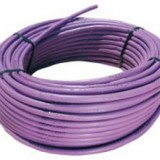
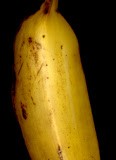
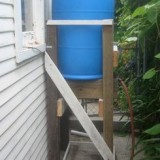
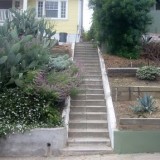
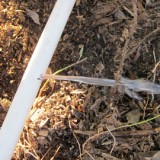

If you want to make your own laundry soap you could use Soap Root Yucca, it’s very abundant, drought tolerant and you could add your own scents like lavender……….
http://www.ehow.com/how_7690588_make-soap-yucca-roots.html
Thanks for the informative post!
Amazing information! I never thought of this before 🙂 I am going to file this away to my very useful stuff folder and share with my farm friends.
Thank you!
Hi –
Just wanted to let you know that Vaska Laundry detergent is also greywater safe and so pure you could actually drink ii. Check it out here: http://www.vaskahome.com
Thank you for the info! Could you or your readers please chime in with what you use for dishes? Most of our dishes go into our super high-efficiency dishwasher, but I’d like a way to reroute the sink water when I’m washing pots and pans. Dr Bronners is fine for handwashing and mopping floors, but I need something with more oomph for my dirty pots.
I’ve not experimented with it myself, but I’d try Oasis Dishwash/All-Purpose Cleaner.
Hydrogen peroxide will have some bleaching effect (though it works wonders with blood). I’ve got a few pieces of clothing with lighter areas from using it. Definitely test or research before applying it straight.
The BioPac site won’t let us order the laundry detergent directly from them. Instead it says “UPS has been destroying cases.” What the?
It can be a bit frustrating sometimes to find Oasis detergent. Sometimes Amazon has it and sometimes they don’t (right now they don’t but they had it late last year when we last ordered it). I’ve always managed to find someone selling it online.
??? That is very strange! But we’ve always managed to get it. A slight correction to Mr. H. — we bought our last bottle through Amazon only two weeks ago, but not via Amazon itself but a retailer called Nutricity. I suspect it will come back in stock soon.
Ecos claims their detergent is greywater safe. I haven’t used it but it’s endorsed on greywateraction.org
Good information. I have a septic system and am aware of limitations of what I can run down the drain but I learned some things from your post.
Well, I still love my soap nuts. I keep meaning to try making soap from conkers (Horse Chestnut, Aesculus hippocastanum, naturalised in the UK) but as well as being hard work, I have read that it may discolour the clothes, so it’s not very high up my to do list. One of my Rainbow Guides made soap from some after we collected lots at a meeting, but I’m not sure her dad will be doing it again this Autumn after grating dozens of conkers to do it!
Yes, the soap nuts are imported (the usual criticism), but they’re dry, so they can be shipped rather than flown; they’re fair trade and I bet the miles clock up on all the ingredients in even eco-products anyway.
I use them in the dishwasher too now and just compost them when they’re soggy.
We’ve used ecos successfully for more than a year in our laundry to graywater system. As another commenter posted, it states that it’s graywater safe and it’s available at our local whole foods.
We actually push the cloth diaper graywater out to the landscape. It’s for non-edibles, discharges to mulch basins below the surface, and is not in a place that gets foot traffic – so why waste the nutrients?
Good point about the diaper water, Matt. I spoke too absolutely when I said not to use it, probably because subconsciously I didn’t want to get into explaining the ins and outs of it all. It can be used, yes, if you’re very careful, and have done your research. It sounds like you’re dealing with that black water safely by keeping it underground in deep mulch basins.
I wouldn’t want to encourage someone new to greywater using diaper blackwater inappropriately in their enthusiasm. For instance, we know of someone who hooked their blackwater to sprinklers. Sprinklers!!!
My new slogan: “We must respect the poo.”
@Kay and @Matt
Thanks for the tips about Ecos. I checked the ingredients and yep, no salts, so I’m going to amend the post to include it.
My interest stems from treating water and sending effluent to field, or wetland areas and the effect SAR presents, as such your article applies. I would like to caution statements made about what is sent to treatment as that invariably ends up in nature and we can only treat to the influent quality. Sodiums, chlorine and such are harmful to the biological process, get the picture. Stop Sodium and allow some phosphates, that we can manage globally much better
Thank you for this awesome post! I’m looking into Ecos, my local co-op sells it which is great. However, in the ingredients “Sodium Coco-Sulfate (coconut-based surfactant)” is listed. Is this not a bad type of salt? Thank you!
Caitlin–thanks for spotting this. I’ve updated to post to note that some folks do not consider sodium coco-sulfate to be a biocompatible ingredient.
I just recently discovered a website on ‘garbage enzymes’ made by using 10 parts water, and 1 part brown sugar and 3 parts vegetable/fruit waste, fermented 3 months. Sounds weird, but here is the link to this. I am excited about it. I just had my first batch, added a small amount to the toilet to clean (excellent), used it to clean drain, and added to hand soap as recommended. It is also useful for insecticide, garden fertilizer, etc. It seems it might be something that would also be useful for those who are doing the graywater systems.
http://www.ecowalkthetalk.com/blog/2011/02/27/how-to-make-and-use-garbage-enzymes/
They also believe this helps clean up the environment. A wonderful idea, and certainy, another great reuse for our garbage. Once fermented, you can still throw the strained organic solids into the compost heap or your garden directly,
I was wondering about Trader Joe’s laundry detergent which seems to have a simple list of ingredients: Purified Water, Plant based surfactants(coconut), soy based fabric softener, cellulose optical brightener, lavender oil. But since I am new to this – I don’t know what the majority of these things are but it claims to be non polluting…can you help?
Where do I find Oasis Laundry detergent? It is almost impossible to find a reputable company who sells it and in stock. Any ideas???
I don’t know what is going on with BioPac, the distributors of Oasis. They used to ship Oasis directly, then they stopped for some reason. They had a store locator on their site very recently, but now I see that it is gone. Really disappointing.
I’m not sure what to tell you. Oasis seems to come and go from Amazon. It’s worth checking once in a while to see if it’s there. We can get ours — sometimes– from a local health food store. Check your health food stores, ask them if they’ll stock it or special order it for you.
I picked up Boulderclean http://www.boulderecocleaners.com/laundry-detergent.html at Costco which says it is grey water safe. I haven’t found any reviews about it with regards to grey water and it contains some sodium ingredients so I wanted to get an opinion before I let it pour out onto the mulch at the base of my grape vines.
Just looked at the ingredients: Sodium chloride is plain old salt. Sodium borate is borax. I wouldn’t put either of these things in my soil.
ONE OF THE MAIN INGREDIANTS in “oasis-biocompatible” is “linear alkylbenzene sulfonate …is a colourless salt with useful properties as a surfactant.” https://en.wikipedia.org/wiki/Sodium_dodecylbenzenesulfonate
Can someone explain why this ingrediant is ok? Seems like Soap nuts are the only option..
Oasis charges an 80$ “handling” fee to send 2 boxes of their products from Santa Barbara to LA. We might need a grey water products co-op to make their products affordable and available.
Fact Check: The pH scale is a measure of the amount of H+ ions vs. OH- ions in a solution. The scale runs from pH 0 to pH 14. The lower the pH the more acidic the solution (greater amount of H+ ions). H+ is a hydrogen atom that has lost one electron. The higher the amount of OH- the more alkaline (greater proportion of OH- ions). OH- has one more electron than neutral. The maximum pH scale for alkalinity is pH 14. The maximum pH scale for acidity is pH 0 (which seems counter-intuitive). Neutral pH, neither acidic or alkaline is pH 7. Pure water has a pH of 7. It seems to me that a laundry soap with neutral pH (pH 7)is not itself a cause for concern, since the best agricultural soils are neither acidic nor alkaline.
Adding vinegar to your laundry (1/2 cup per load) with LifeTree will act as a softener and will lower the PH level of your water. I use the grey water for my citrus and avocado trees and they seem fine.
As soon as I changed to oasis detergent all my trees recovered. Thanks again
I have been using soap nuts (with the occasional spot treatment as they do not get stains out well) and my grape vine is growing out of control and my clothes are really soft with no other treatment necessary.
It came with Extreme 18x, a liquid version of the soap nuts, which I think we will switch to when our soap nuts are gone as we have trouble keeping tract of how many time the soap nuts have been used.
Has anyone used the Extreme 18x?
Ingredients: Pure Saponin aqueous extract from 100% organic Sapindus mukorossi, vegetable glycerin, olive leaf extract (olea europea leaf extract), potassium sorbate and sodium benzoate as preservatives (food grade).
Costco has a laundry detergent called BoulderClean. It claims to be biodegradable with no harsh ingredients. Is this a safe grey water for use in the yard, particularly the lawn?
No, it contains salt and borax. Like many eco detergents, it is fine for the sewer–much better than other things–but not good for plants.
I don’t understand. We make our own hard soaps (using sodium hydroxide). But, why is it deemed “okay” to use them in the shower to wash our body and hair, but not ok to wash our laundry?
It’s about the chemistry. You make soap with sodium hydroxide, but after you finish the process, there’s no longer any sodium hydroxide present — it’s been transformed along with the fat into soap. (And good thing, too, or we’d burn off our faces when we used it! 😉 ) So there’s no problem using homemade bar soap in your laundry.